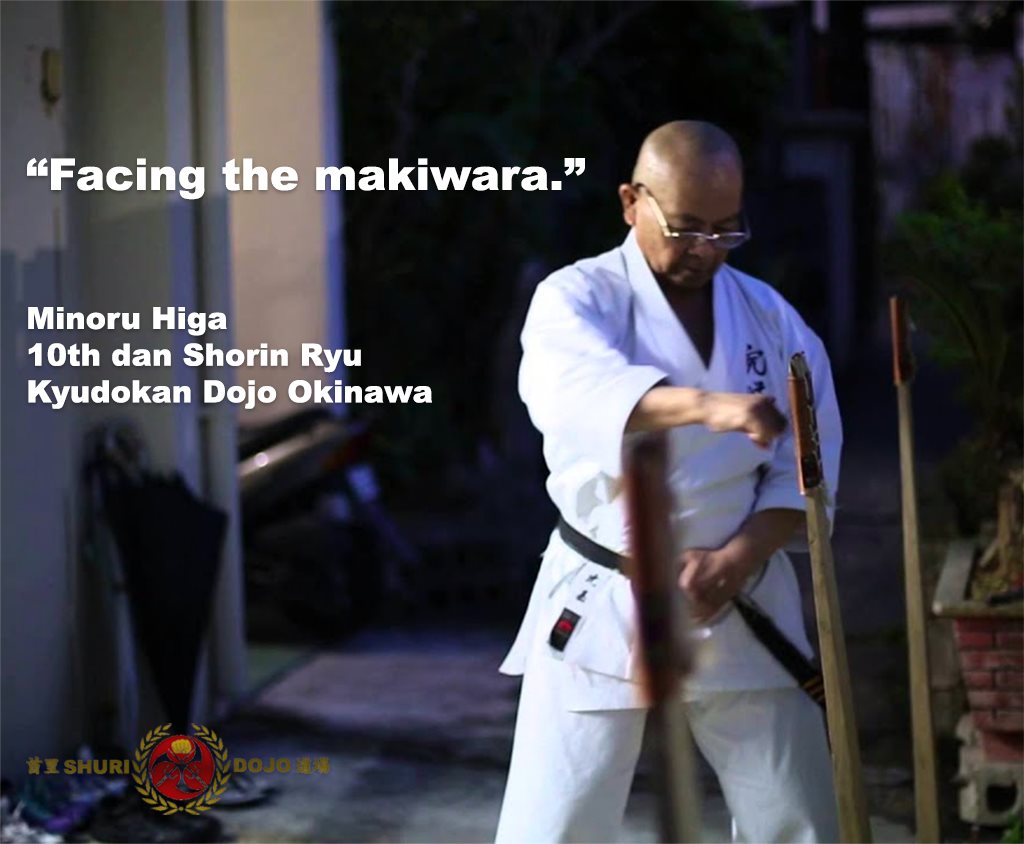
“Facing the makiwara.” ??
.
Minoru Higa 10th dan Shorin Ryu Kyudokan Dojo Okinawa
.
The makiwara (巻藁) is a padded striking post used as a training tool in various styles of traditional karate. It is thought to be uniquely Okinawan in origin. The makiwara is one form of hojo undō (supplementary training) used by Okinawan martial artists.
.
In 1908, Anko Itosu sent a letter to the Education Department of the Okinawa Prefecture. In that letter there was his project, which allowed to introduce his karate in all the schools of Okinawa. The fourth point of his letter highlights the importance of the makiwara in the practice of his karate.
.
Itosu wrote: “Hands and feet are important and must be strengthened exhaustively with the use of makiwara. The practice of makiwara allows to lower your shoulders, open your lungs, become aware of your own power, strengthen your grip on the ground with your feet, transfer, and use the energy in the lower abdomen. Practice with each arm one hundred or two hundreds times”.
.
It is said that the primary aim of facing the makiwara is to develop a strong punch or strike and also to condition the hand and wrist to absorb some impact in order that the punch may be delivered correctly and effectively. This may seem obvious, however if a majority of your training involves “fresh air” techniques, then it is vital that you become accustomed to hitting something solid. If this is not undertaken, then the first time you hit something hard with your best technique, your wrist will give way before your opponent does! Facing the makiwara also has the added benefit of ensuring that correct breathing and form are employed as poor technique soon manifests itself!
.
“Facing the makiwara”. If done correctly it is a challenge. Just like every other aspect of training Karate, it represents a commitment which is hard to live up too. Facing the makiwara is hard – it takes everything you give it and yet demands more – it acts like a teacher, controlling your progress and punishing your errors – it is reflective of your commitment to your studies, neglect it and it shows, practice diligently and you will reap the rewards.
